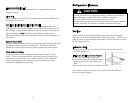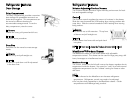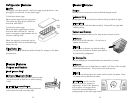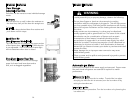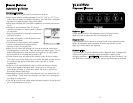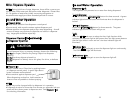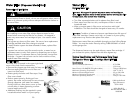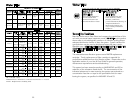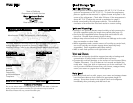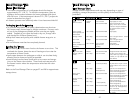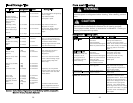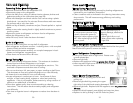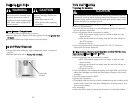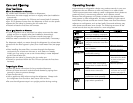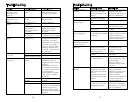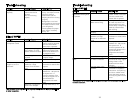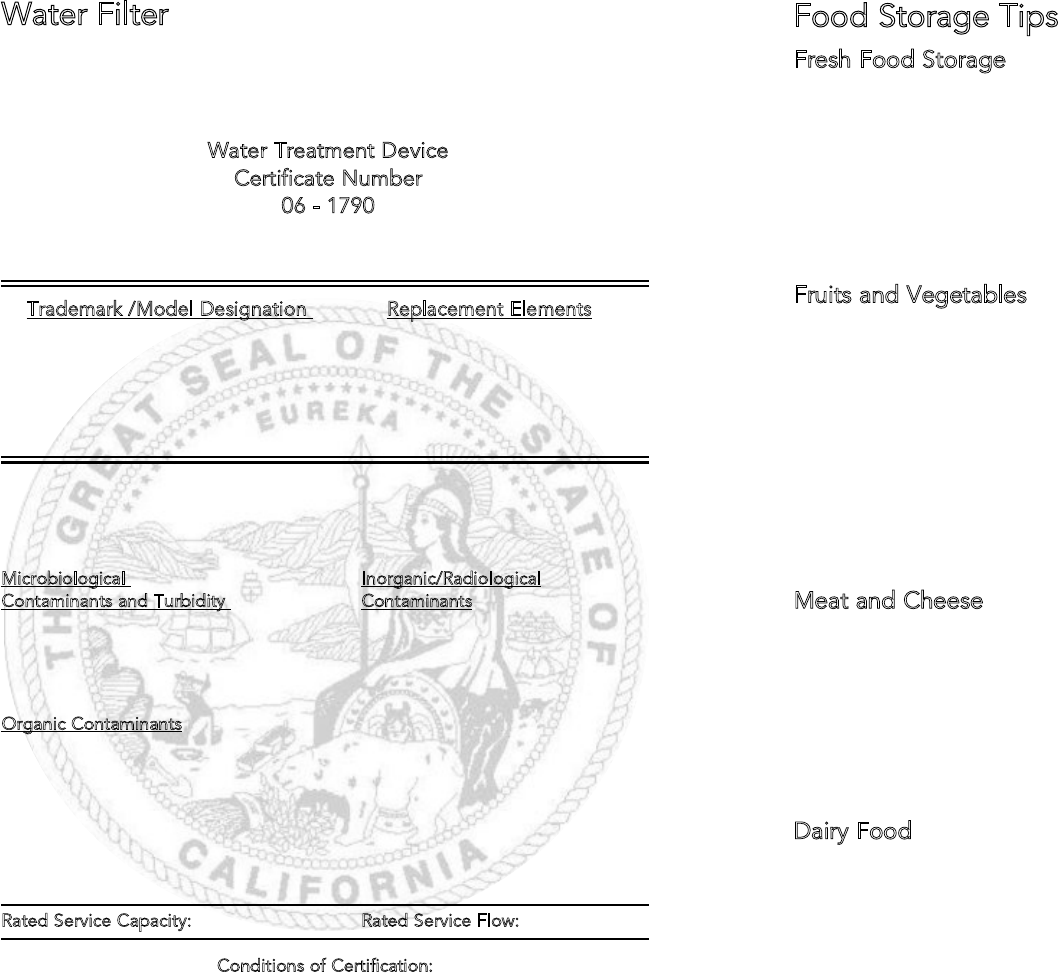
25
Food Storage Tips
Fresh Food Storage
• The refrigerator should be kept between 34°-40° F (1°-4° C) with an
optimum temperature of 38° F (3.3° C). To check the temperature,
place an appliance thermometer in a glass of water and place in the
center of the refrigerator. Check after 24 hours. If the temperature is
above 40° F (4° C) adjust the control as explained on page 5.
• Avoid overcrowding the refrigerator shelves. This reduces the
circulation of air around the food and results in uneven cooling.
Fruits and Vegetables
• Storage in the produce drawers traps humidity to help preserve the
fruit and vegetable quality for longer time periods (see page 11).
• Sort fruits and vegetables before storage and use bruised or soft
items first. Discard those showing signs of decay.
• Always wrap odorous foods such as onions and cabbage so the odor
does not transfer to other foods.
• While vegetables need a certain amount of humidity to remain fresh,
too much humidity can shorten storage times (especially leafy
vegetables). Drain vegetables well before storing.
• Wait to wash fresh produce until right before use.
Meat and Cheese
• Raw meat and poultry should be wrapped securely so leakage and
contamination of other foods or surfaces does not occur.
• Occasionally mold will develop on the surface of hard cheeses (Swiss,
Cheddar, Parmesan). Cut off at least an inch around and below the
moldy area. Keep your knife or instrument out of the mold itself. Do
not try to save individual cheese slices, soft cheese, cottage cheese,
cream, sour cream or yogurt when mold appears.
Dairy Food
• Most dairy foods such as milk, yogurt, sour cream and cottage cheese
have freshness dates on their cartons for appropriate length of
storage. Store these foods in the original carton and refrigerate
immediately after purchasing and after each use.
24
Water Filter
State of California
Department of Health Services
Water Treatment Device
Certificate Number
06 - 1790
Date Issued: June 1, 2006
Trademark /Model Designation Replacement Elements
RWFFR- 750 RWFFR
Manufacturer: CUNO, Incorporated, a 3M Company
The water treatment device(s) listed on this certificate have met the
testing requirements pursuant to Section 116830 of the
Health and Safety Code for the following health related contaminants:
Microbiological Inorganic/Radiological
Contaminants and Turbidity Contaminants
Cysts Asbestos
Turbidity Lead
Mercury
Organic Contaminants
Atrazine
Lindane
Benzene
Carbofuran
p-dichlorobenzene
Toxaphene
Rated Service Capacity:
750 gallons
Rated Service Flow:
0.78 gpm
C
onditions of Certification:
Do not use where water is microbiologically unsafe or with water of unknown
quality, except that systems certified for cyst reduction may be used on
disinfected waters that may contain filterable cysts.



